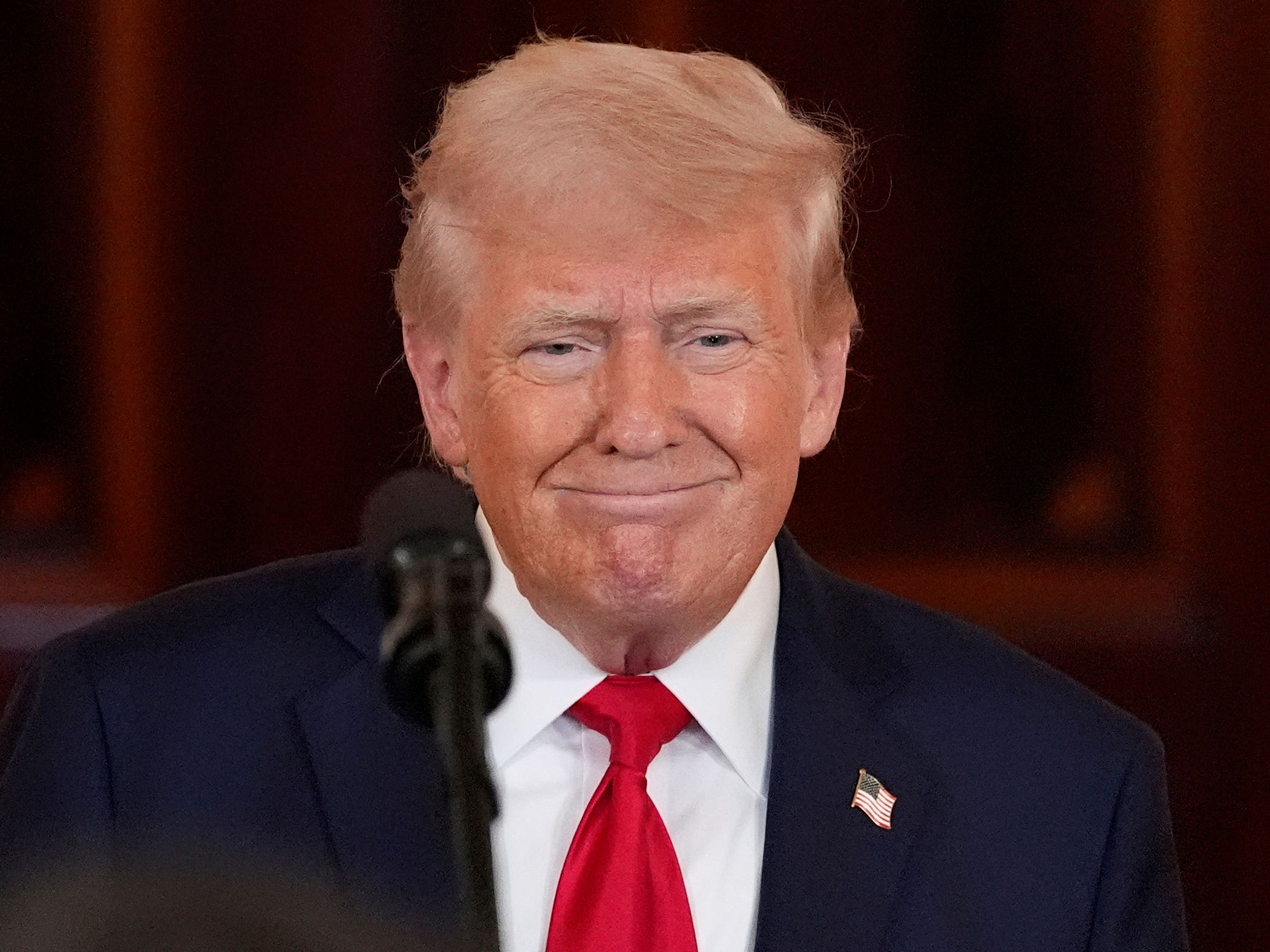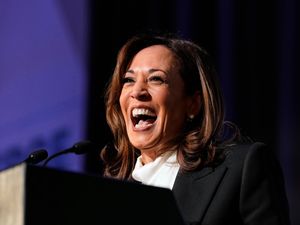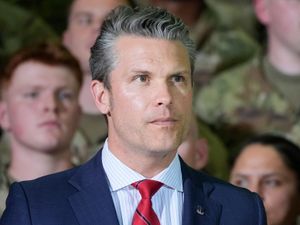House approves funding bill and sends to Senate hours before shutdown deadline
The new 118-page package would fund the government at current levels until March.
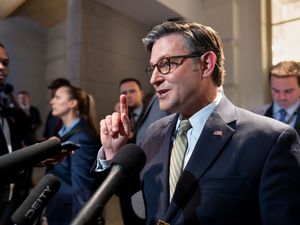
The House of Representatives has approved a new plan that would temporarily fund federal operations and disaster aid, but drops President-elect Donald Trump’s demands for a debt limit increase into the new year.
Speaker Mike Johnson insisted Congress would “meet our obligations” and not allow federal operations to close ahead of the Christmas holiday season, but the outcome had been uncertain after Mr Trump insisted that a debt ceiling increase be included in any deal, or the closures would “start now”.
Late on Friday, with hours to go before the shutdown deadline, the bill was approved 366-34, and now goes to the Senate for expected quick passage.
“We’re excited about this outcome,” Mr Johnson said afterwards, adding that he had spoken with Mr Trump and the president-elect “was certainly happy about this outcome as well”.
It was the third attempt from Mr Johnson, the beleaguered House speaker, to achieve one of the basic requirements of the federal government — keeping it open – and it raised stark questions about whether he will be able to keep his job in the face of angry Republican colleagues and work alongside Mr Trump and billionaire ally Elon Musk, who have called the legislative plays this time.
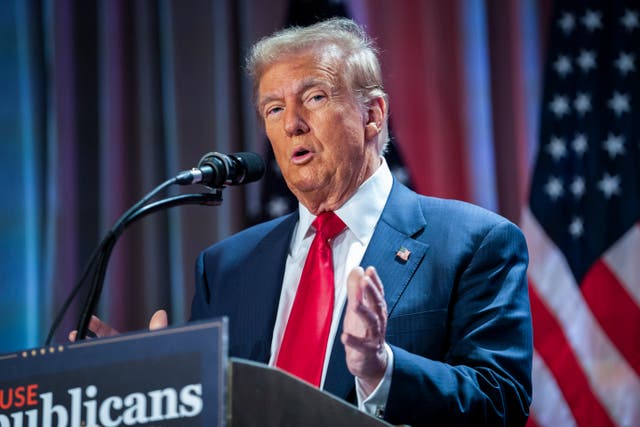
Mr Trump’s last-minute demand was almost an impossible ask, and Mr Johnson had almost no choice but to work around his pressure for a debt ceiling increase.
The speaker knew there would not be enough support within the Republican majority to pass any funding package since many in the party prefer to slash federal government and would not allow more debt.
Instead, the Republicans, who will have full control of the White House, House and Senate next year, with big plans for tax cuts and other priorities, are showing they must routinely rely on Democrats for the votes needed to keep up with the routine operations of governing.
“So is this a Republican bill or a Democrat bill?” scoffed Mr Musk on social media ahead of the vote.
The new 118-page package would fund the government at current levels through March and adds 100 billion dollars in disaster aid and 10 billion dollars in agricultural assistance to farmers.
Gone is Mr Trump’s demand to lift the debt ceiling, which Republican leaders told legislators would be debated as part of their tax and border packages in the new year.
Republicans made a so-called handshake agreement to raise the debt limit at that time while also cutting 2.5 trillion dollars in spending over 10 years.
It is essentially the same deal that failed the night before in a spectacular setback — opposed by most Democrats and some of the most conservative Republicans — minus Mr Trump’s debt ceiling demand.
Democratic Leader Hakeem Jeffries was in contact with Mr Johnson, but Democrats were cool to the latest effort after the Republican speaker reneged on their original bipartisan compromise.
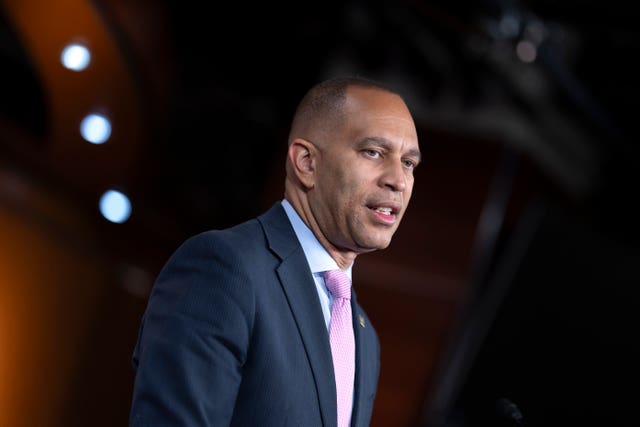
“Welcome back to the MAGA swamp,” Mr Jeffries posted.
Rosa DeLauro, the senior Democrat on the Appropriations Committee, said it looked like Mr Musk, an unelected official and the wealthiest man in the world, was calling the shots for Mr Trump and the Republicans.
“Who is in charge?” she asked during the debate.
But most Democrats approved the bill.
Mr Trump, who has not yet been sworn into office, is showing the power but also the limits of his sway with Congress, as he intervenes and orchestrates affairs from Florida alongside Mr Musk, who is heading the incoming administration’s new Department of Government Efficiency.
“If there is going to be a shutdown of government, let it begin now,” Mr Trump posted early in the morning on social media.
He does not fear government shutdowns in the same the way as Mr Johnson and the legislators.
The incoming Trump administration aims to slash the federal budget and fire thousands of employees. The president-elect sparked the longest government shutdown in history in his first term at the White House – the month-long closures over the 2018-19 Christmas holiday and new year period.
More importantly for Mr Trump was his demand for pushing the thorny debt ceiling debate off the table before he returns to the White House. The federal debt limit expires on January 1, and he does not want the first months of his new administration saddled with tough negotiations in Congress to lift the nation’s borrowing capacity. It gives Democrats, who will be in the minority next year, leverage.
“Congress must get rid of, or extend out to, perhaps, 2029, the ridiculous Debt Ceiling,” Trump posted — increasing his demand for a now five-year debt limit increase. “Without this, we should never make a deal.”
Mr Johnson tried at first to appease Mr Trump’s demands, but ultimately had to work around them.
Mr Trump and Mr Musk unleashed their opposition — and social media army — on the original plan Mr Johnson presented, which was a 1,500-page bipartisan compromise he struck with Democrats that included disaster aid for hard-hit states, but did not address the debt ceiling.
A Trump-backed second plan, Thursday’s slimmed-down 116-page bill with his preferred two-year debt limit increase into 2027, failed in a monumental defeat, rejected by most Democrats as an unserious effort — but also by conservative Republicans who refuse to pile on the nation’s red ink.
On Friday morning, vice president-elect JD Vance and Mr Trump’s pick to be director of the Office of Management and Budget, Russ Vought, arrived early at the speaker’s office at the Capitol, where a group of holdouts from the hardline House Freedom Caucus were meeting Mr Johnson.
Later, during the lunchtime meeting of House Republicans in the Capitol basement, Mr Johnson asked for a show of hands as they determined the path forward, Republican Ralph Norman said.
Government workers have already been told to prepare for a federal shutdown which would send millions of employees — and members of the military — into the holiday season without pay cheques.
President Joe Biden, in his final weeks in office, has played a less public role in the debate, drawing criticism from Mr Trump and Republicans who are trying to shift the blame for any shutdown on him.


